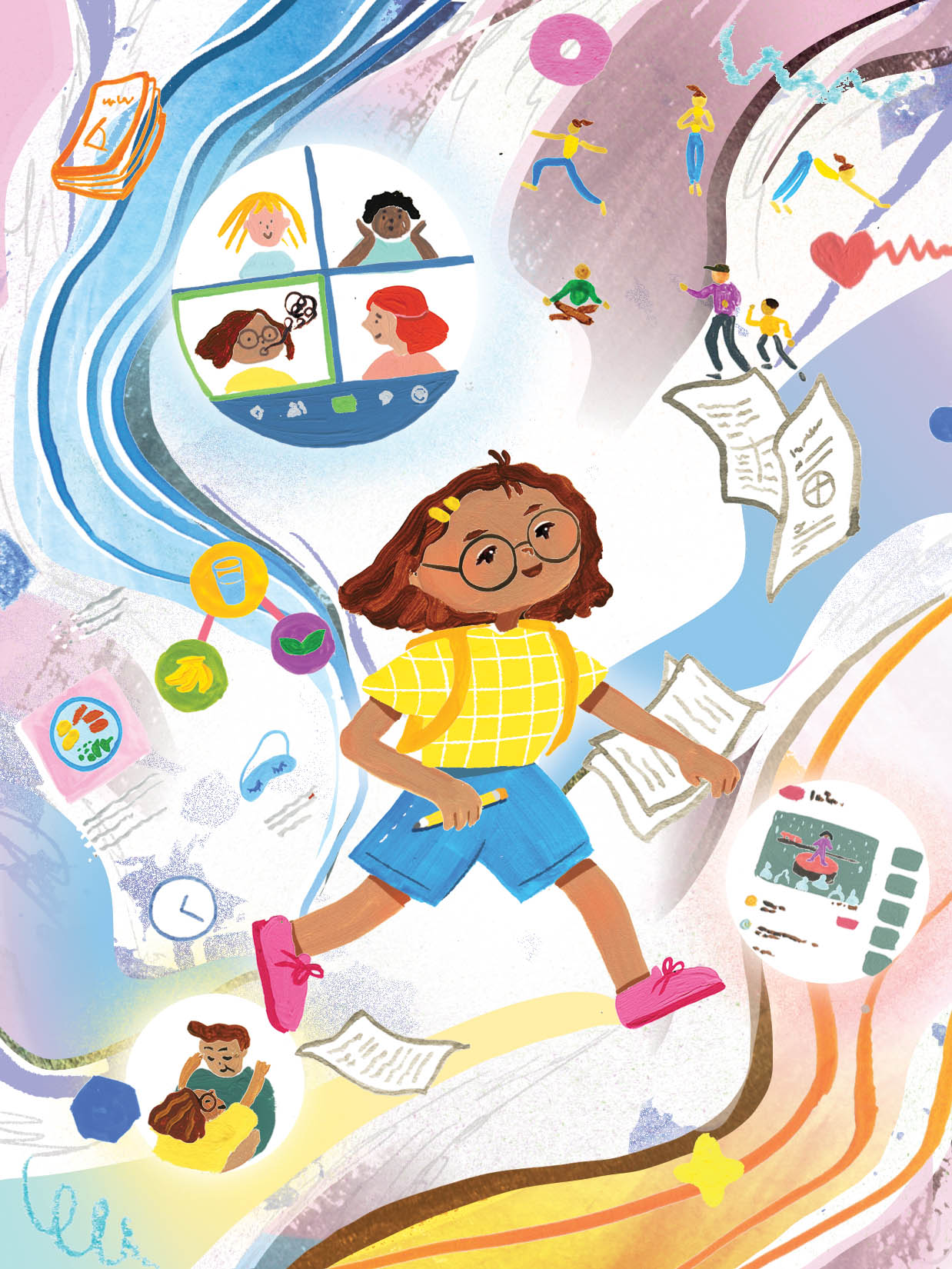Share this page
ILLUSTRATION: Janie Hao

The 2020–21 school year was a stressful one for nearly everyone. I observed a lot of scared and confused faces on my screen while I was teaching students virtually. To help, I made it a priority to create a positive learning environment and help students build resiliency.
As a class, we watched many TED Talks about mental health and used the TED Talk worksheets, too, to help students find ways to share their feelings. I chose videos that were based on such topics as emotional well-being, overcoming anxiety and handling challenging environments. I also shared articles from scientific journals related to mental-emotional health, sleep and good eating habits. We read these together and then worked in breakout rooms to discuss them.
Our class had productive discussions on these subjects, and many parents reached out to me, as well, to share their appreciation for these lessons.
Sameer Bhagirathi, OCT, teaches a Grade 4/5 gifted class at Iroquois Junior Public School in the Toronto District School Board.
by Stefan Dubowski
The Advanced Coronary Treatment (ACT) Foundation has a new free online course as the first step in its High School CPR and Defibrillator Program. The web lessons are designed to help students grasp the basics of cardiopulmonary resuscitation (CPR) quickly and conveniently, targeting the "Rs" of resuscitation: risk factors for heart disease and stroke, how to recognize the signs of a heart attack and other emergencies, and how to react. The program also introduces students to the most crucial R: how to resuscitate. Students then go on to learn more through hands-on practice, in which they'll use ACT-sourced mannequins and automated external defibrillators (AEDs — devices you can use to restart a heart).
The new online portion averages 1.5 hours of lessons — a small investment that could lead to a big payoff. As many as 40,000 people experience cardiac arrests each year in this country, says the Heart and Stroke Foundation of Canada. ACT points out that many of those sufferers don't survive because relatively few Canadians know how to perform CPR or know how to use an AED. And most cardiac arrests happen in people's homes or public places, not necessarily near hospitals, doctors' offices or other locations where expert medical help may be readily at hand. The foundation wants every high school student across Canada to have life-saving CPR and AED skills.
Schools enrolled in the High School CPR and Defibrillator Program can access the online course straight away. Contact ACT through actfoundation.ca if you want your school to take part.